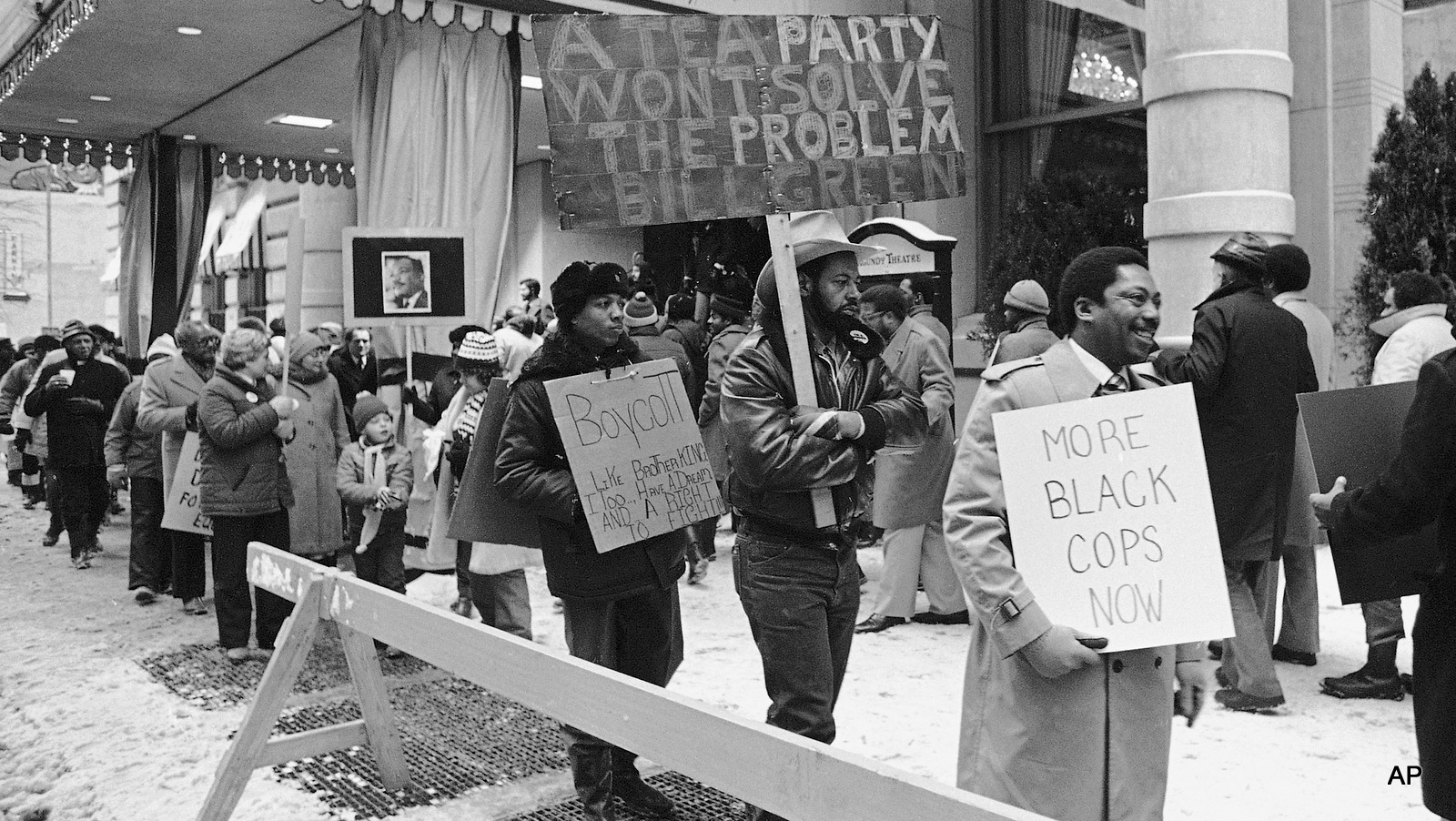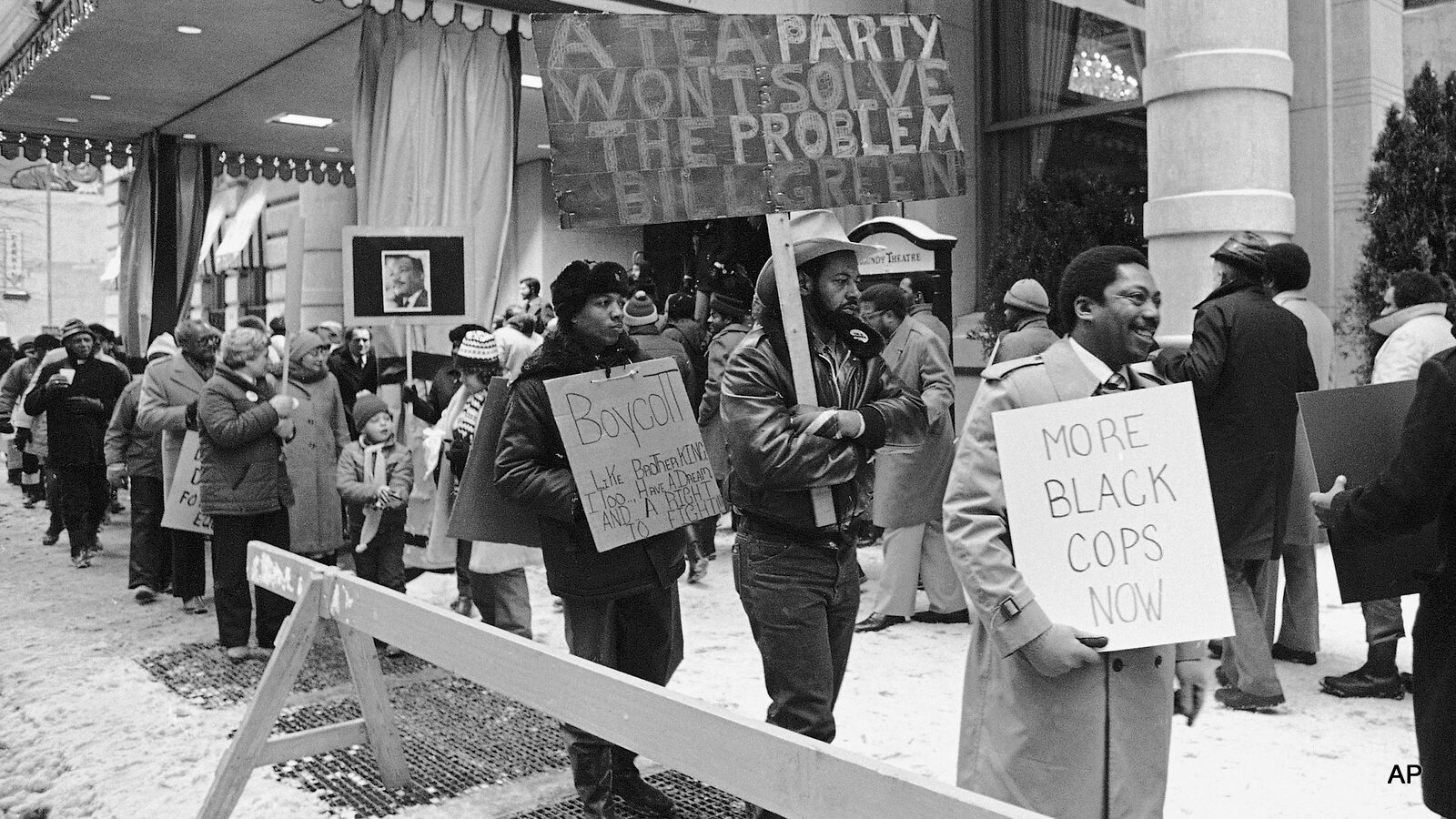
MINNEAPOLIS — Shaun King, the senior justice writer for the New York Daily News, is gearing up for a nationwide boycott to target systemic racial inequality and police brutality.
As of Friday afternoon, 81,191 had signed up to participate in King’s Injustice Boycott, which will launch on Dec. 5, marking the anniversary of the start of the landmark Montgomery Bus Boycott, which began in 1955 and lasted for 381 days.
On Friday, the journalist and civil rights activist wrote in the Daily News:
“[W]e are launching our own Montgomery Bus Boycott to show every city, state, institution and corporation in this country that meaningful, reasonable, achievable reforms on police brutality and injustice are not our long-term dreams. They are our immediate emergency priority.”
In addition to reporting on incidents of police brutality and the Black Lives Matter movement, King has fundraised for victims of injustice in the past, including Tamir Rice, but the Injustice Boycott may be his most ambitious project yet.
King wrote that the boycott will target corporations, banks, and city and state governments that either profit from systemic oppression or have done too little to prevent it. He also promised to provide “meaningful, substantive alternatives and exceptions for each target of the boycott to help support those who stand against injustice in those cities and states,” noting:
“It is going to take the same type of determination and organization that we saw with the Montgomery Bus Boycott over 60 years ago for us to succeed. We’ve done it before. We can do it again. We will do it again.”
The Montgomery Bus Boycott began when the black civil rights activist Rosa Parks was arrested for refusing to give her seat to a white passenger on a city bus in Montgomery, Alabama. It ended just over a year later, on Dec. 20, 1956, when the Supreme Court ruled that state and local laws segregating buses were unconstitutional. Many civil rights luminaries, including Dr. Martin Luther King Jr., took part in the boycott.
In calling for a nationwide boycott, King is invoking a long-standing tradition of using this strategy to put pressure on powerful governments and corporations on behalf of oppressed peoples. Here are three historic or ongoing boycotts with major impacts:
The Anti-Apartheid Movement
Launched in London in 1959, the Anti-Apartheid Movement sought to put financial and social pressure on the South African government to end its apartheid policies toward blacks. A major corporate target of the boycott was Polaroid, which helped the white government identify and track blacks. Activities in the movement continued until 1994, when former anti-apartheid activist and political prisoner Nelson Mandela was elected president of South Africa. Lord Hughes, a British Labour politician and major AAM leader for decades, told Al-Jazeera on Feb. 23:
“The AAM used a variety of methods to oppose the apartheid regime, which in the end did lead to its downfall. … Boycotting was a very effective propaganda tool.”
Watch Polaroid & Apartheid: Inside the Beginnings of the Boycott, Divestment Movement Against South Africa:
Delano grape strike and boycott
Launched in September 1965 by the Agricultural Workers Organizing Committee, a coalition of mostly Filipino farm workers in Delano, California, the Delano grape strike and boycott was quickly joined by the National Farm Workers Association, a largely Mexican-American group led by civil rights leaders such as Cesar Chavez and Dolores Huerta. The two groups later merged to become the United Farm Workers of America. In addition to farmer actions like marches, strikes, and nonviolent direct action, consumer boycotts of grapes were a key strategy in the labor movement which eventually saw workers win the right to collective bargaining and negotiate their first contract in 1970.
Of boycotts, Chavez once said:
“The consumer boycott is the only open door in the dark corridor of nothingness down which farm workers have had to walk for many years. It is a gate of hope through which they expect to find the sunlight of a better life for themselves and their families.”
Watch California Farmworkers Who Sparked A Rebellion For Farmworkers’ Rights:
Boycott, Divestment and Sanctions movement
The Boycott, Divestment and Sanctions movement puts financial pressure on Israel to end its apartheid-like policies toward the indigenous Palestinian population of the region. Launched in July 2005 with an open letter signed by Palestinian civil society groups and over 170 human rights NGOs, activists have successfully put pressure on artists and musicians to stop touring Israel, and targeted consumer products produced by companies like Sodastream, Sabra and HP. The BDS movement costs Israel at least $4.7 billion annually, and a wave of anti-BDS bills in the United States reflects a growing panic on the part of Israeli authorities.
In an interview in May, Omar Barghouti, cofounder of the BDS movement, told The Intercept’s Glenn Greenwald:
“I think after years of failure in stopping or even slowing down the growth of BDS and the growth of support for BDS around the world, especially in the West, Israel is resorting to its most powerful weapon, if you will, which is using its influence in the U.S. Congress and through that its influence in Brussels and in the E.U. and so on to criminalize BDS from above, after failing to stop it from below.”
Watch “Mnar Muhawesh: Boycotting Israel May Soon Become Illegal Across US” from MintPress News’ “Behind the Headline”:
The Injustice Boycott continues to grow ahead of its December launch, and King stressed in the Daily News that remaining silent in the face of injustice is the same as condoning it. He wrote:
“Passively complying with slavery, genocide or widespread injustice is actually a form of support. We’ve crossed a line in this country right now where this must no longer be tolerated on our watch.”


